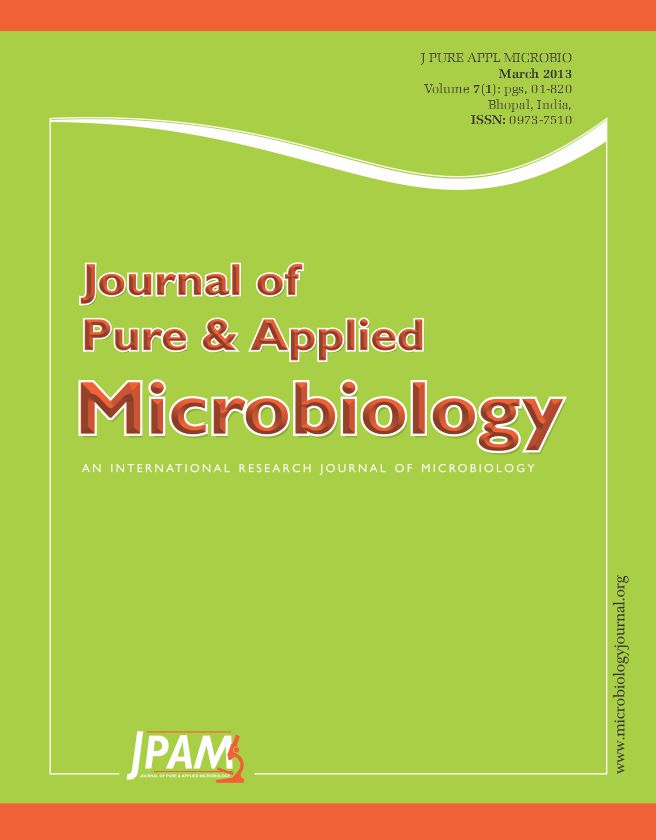Bean yellow mosaic virus (BYMV) was isolated from symptomatic plants in Iraq. The virus was characterized by its reaction in indicator hosts, aphid transmission, particle protein size and serological reaction. A study was conducted to evaluate the activity of Rhizobium leguminosarum against BYMV in broadbean plants and its role in plant growth stimulation. It was found that broadbean plants grown from rhizobia-treated seeds and sap-inoculated with BYMV showed a significant reduction in disease incidence percentages, 40% compared to 93% in non-treated plants. R. leguminosarum induced a significant reduction in virus concentration in plants grown from rhizobia-treated seeds and mechanically inoculated with the virus, as proved by a decrease in absorbance values of ELISA reactions, 0.4 compared with 1.5 in the control. Increases in foliage and root fresh weights and in nodule numbers were observed in plants emerged from rhizobia-treated seeds, 158.25 g, 79.25 g, 100.6 nodules compared to 118.0 g, 72.25 g, 18.5 nodules in control plants. The results obtained indicate that rhizobia may play an important role in BYMV disease management in broadbean.
Disease management, ELISA, Nodulation, PGPM, Vicia faba
© The Author(s) 2014. Open Access. This article is distributed under the terms of the Creative Commons Attribution 4.0 International License which permits unrestricted use, sharing, distribution, and reproduction in any medium, provided you give appropriate credit to the original author(s) and the source, provide a link to the Creative Commons license, and indicate if changes were made.


